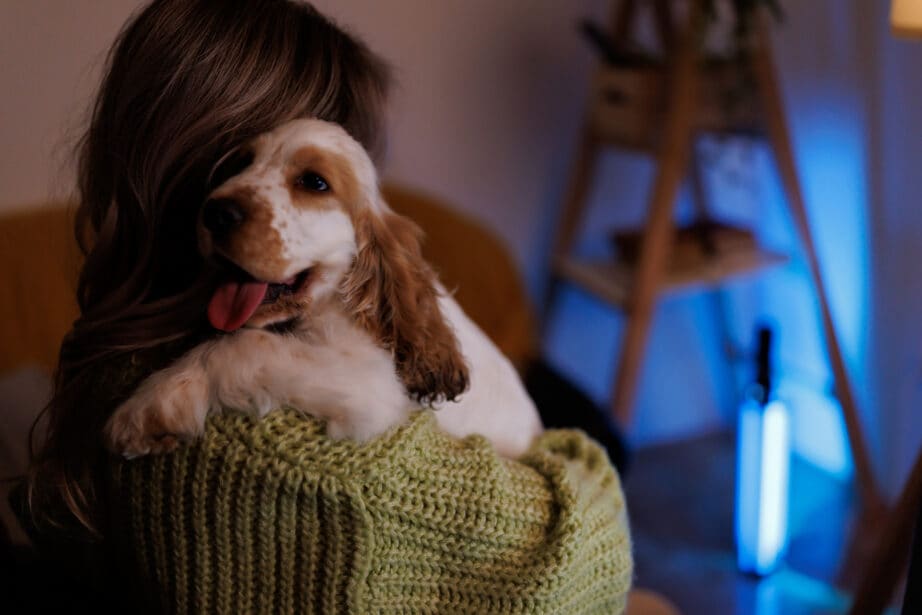
There is a solid opportunity that your dog will cry, whisper, or bark together in those early days. This is especially true at night when the house falls into the dark and everyone falls asleep.
If the first night in your dog’s crate Is cryingDon’t let them “call it”. Instead, check them so that they do not need to urinate or pope, and to tell them that you are there to provide relief.
“The dogs call for a reason, and the possibility is because they are either hungry, need to be eliminated, or they have a hard time adjusting to staying away from their mother and litter mats for the first time,” says Dr. Two. “Let them cry can be physically and emotionally traumatic. You should check the dog regularly and make sure that their needs are met.
5. Take them out to Urine/pope frequently
Your teenage dog has a teenage bladder, which means that they need to be more frequent.
Take your dog on urine and pope before bed and whenever they wake up. Farah says you may need to take them out several times at night. Note that dogs grow up to normal, so try to get them out every day to establish good habits.
How long can dogs hold their bladder? It depends on the dog. To get started, take your dog out every hour, and slowly increase the time between the pot breaks to find out how long your pussy can hold it.
Dr. Two says, “How often a common rule to remove a dog is: In addition to their age, they are equal to a maximum of hours that they can prevent their urine/intestinal movement.” For example, if you have a 2 -month -old dog, it is likely that they will need a pot brake every three hours.
Pro Tip: If your dog has had an accident, do not punish them. Instead, reinforce positive behavior by awarding successful plural visits with praise or a small invitation.
Similarly, set your dog for success by staying permanently Schedule feeding. SEE, to help minimize the bathroom visits at night, plan their last meal at least two hours before bedtime.
“Puppy needs a specific meal that helps encourage and help rapid growth,” says Dr. Two. Most papayas should be fed, which is labeled for papaya or all stages of life.
Large papayas have different requirements for growth and development, so they usually need a diet that is specifically prepared for them. Talk to your veterinarian about the best diet for your dog.
Dr. Two added, “Pappi also has small stomachs, which means that they are unable to eat enough food in the same meal so that they can last for a long time. They should be fed at least three to four times a day, which is equally distanced during the day.
